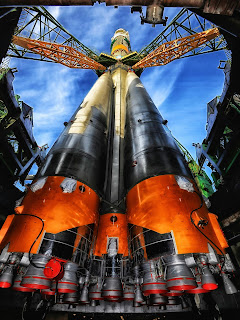Space Colonies: Designing Habitats Beyond Earth
Beyond the Cradle: Designing Space Colonies for a Humanity Among the Stars
Gazing at the Milky Way, have you ever dreamt of humanity taking its next giant leap – establishing a permanent foothold beyond Earth? Space colonies, once the realm of science fiction, are now inching closer to reality. Join us as we embark on a captivating exploration of futuristic concepts and designs for these celestial outposts, delving into the challenges of creating sustainable life support systems, and pondering the potential societal structures that might emerge in these new worlds.
From Tin Cans to Thriving Ecosystems: Reimagining the Space Habitat
Gone are the days of sterile, metallic cylinders. Space colonies of the future are envisioned as sprawling, self-sufficient ecosystems housed within vast, pressurized structures. Imagine towering biodomes teeming with plant life, generating breathable air and providing a connection to nature. Artificial sunlight could bathe these habitats, mimicking Earth's day/night cycle and fostering a sense of normalcy for colonists.
The Art of Staying Alive: Engineering Life Support Systems for a Closed Loop
Living on another world, or even a space station, demands a closed-loop life support system. These marvels of human ingenuity will handle everything from recycling air and water to managing waste and generating power. Advanced hydroponics and aquaponics will likely form the backbone of food production, with colonists cultivating a diverse range of crops and raising protein sources. Renewable energy sources like solar and fusion power will be crucial for providing a sustainable energy source.
Building a Society Anew: The Challenges of Social Structures in Space
Life in a space colony will necessitate a strong sense of community and a carefully considered social structure. Imagine a society built on cooperation, resource management, and a shared sense of purpose. Questions of governance, resource allocation, and conflict resolution will need to be addressed to ensure a harmonious and thriving society. Psychological considerations are also paramount. Imagine the challenges of living in a confined environment, potentially generations away from Earth. Virtual reality and regular psychological support could be crucial for maintaining mental well-being.
The Ethical Quandaries: Who Gets to be a Colonist?
Space colonization raises profound ethical questions. Who gets to be a part of these pioneering ventures? Will it be the wealthy elite, scientists, or a cross-section of society chosen for specific skills and social compatibility? Issues of social equality, representation, and access to this new frontier will need to be carefully considered.
A Stepping Stone to the Stars: The Future of Space Colonies
Space colonies are not about abandoning Earth; they're about ensuring humanity's long-term survival. These outposts could serve as scientific outposts, resource hubs, and stepping stones for further exploration of the cosmos. Imagine a network of space colonies, each with its own unique character and contribution to a burgeoning interplanetary society.
The Journey Begins Now: From Dreams to Reality
Space colonies may seem like a distant dream, but the groundwork is being laid today. Advancements in robotics, 3D printing, and sustainable technologies are paving the way for these futuristic habitats. International collaboration will be key in overcoming the immense technical and financial hurdles.
As we look towards the stars, the possibility of space colonies ignites our imagination. These celestial outposts represent the next chapter in humanity's ongoing story, a testament to our enduring spirit of exploration and our desire to reach for a future among the stars. What role will we play in this epic endeavor? The answer lies in our collective ingenuity and our unwavering determination to push the boundaries of the known.











Comments
Post a Comment